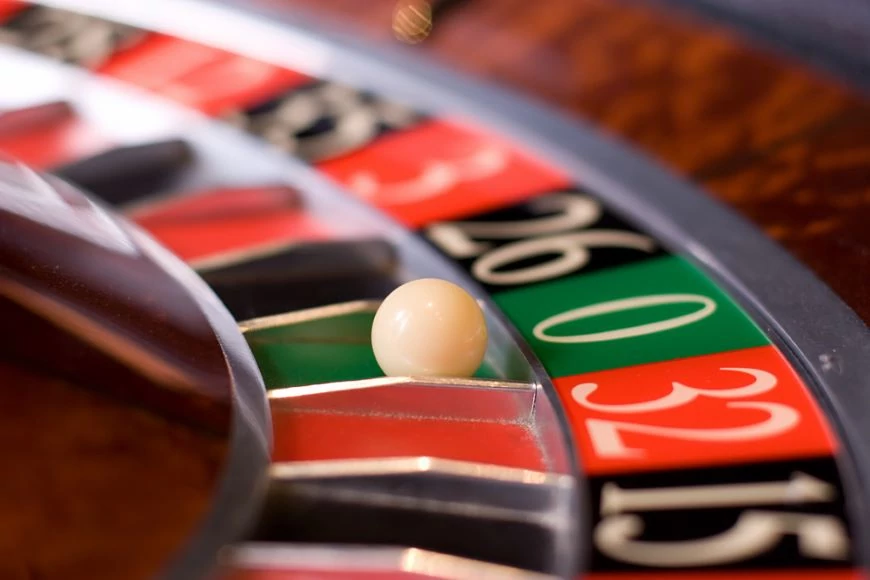History tells us that French physicist Blaise Pascal invented the roulette wheel in his attempt to create a perpetual motion machine.
History tells us that French physicist Blaise Pascal invented the roulette wheel in his attempt to create a perpetual motion machine.




Roulette is one of the oldest and most easily recognisable casino games in the world. Most people have a rough idea of the game’s concept, which involves the dealer throwing a ball onto the wheel and players winning based on whether the ball lands on a number they have betted on.
Of course, there’s more to the game than just spinning a wheel. In this article, we will explore the origin and basic rules of the popular game.
Summary
Similar to the case with its fellow casino game of blackjack, the early history of the wheel is not entirely clear. General consensus says that the roulette wheel was invented by French physicist Blaise Pascal in the 17th century, though his intention was less to do with creating a game and more a byproduct of his scientific quest for a perpetual motion machine.


An early version of the game appeared in Britain in the 1720s but was banned by 1739. By the end of the 18th century, the roulette wheel that we know today had reached casinos in France, but it was outlawed in 1837 by King Louis Philippe.
The early wheel featured two house pockets – a zero and a double zero. In 1843, French brothers Francois and Louis Blanc removed the double zero from their roulette wheel, which proved popular among players as the exclusion decreased the house edge by a few percentage points, which translates to better chances for players.
After gambling was banned in France, the Blanc brothers moved to Germany and introduced the single zero roulette there. Their variant became so popular that it was adopted throughout casinos in Europe.
As the game flourished in Europe, it also made its way to America. Besides having only 28 numbers, the early American variant featured three house pockets – a zero, a double zero and an eagle symbol. This meant a significantly higher house edge. Though today’s American roulette features 36 numbers and has eliminated the eagle symbol, it still retains the double zero not found in other contemporary variants.
The roulette wheel features red and black slots, the numbers 1 through 36, and one or two green zero slots. In most cases, the European variants of the game feature a single zero slot while the American variants offer two.
Before the wheel is spun, players place their bets on the table. Similar to the wheel, the roulette table is the same for most variations except the American version, which features an additional field for the double zero.
While the spinning of the wheel is simple to understand, the betting system is more complex, as there are three main types of bets you can place when playing.
On a roulette table, the numbers 0 to 36 are arranged sequentially in rows and columns. Chips that are placed on the numbers themselves are called inside bets, which can be further divided into seven types:
Besides the number boxes, the table possesses sectors for betting on groups of numbers. These sectors are red or black slots, even or odd numbers, 1 to 18, 19 to 36, dozens, and columns.
The act of placing chips on any of these sectors, which denotes that the player is betting on the ball to land on a number within the selected group, is called an outside bet. An outside bet increases your chance of winning, but the payout for betting on a group of numbers is smaller compared to betting on only one number.
Most often found in French roulette and sometimes online European variants, announced bets are special betting combinations, such as Voisins du Zéro, Le Tiers Du Cylindre, Jeu Zéro and Orphelins. As this is a more advanced form of betting, a new player doesn’t need to worry too much about it.
Like just about everything else, roulette has become more readily accessible to the masses thanks to the development of the internet. Online roulette is played the same way as playing it in a real-life setting, only that it is virtual.
The most prominent advantage of online roulette is that, with hundreds of online casinos at your fingertips and most of them catering to mobile platforms, you can literally start a game within the same minute you feel like playing it – and with the option of playing it for free or with real money. Besides being convenient, online casinos offer a vast variety of the game to players regardless of their geographical location.


It is also easier to access unique variant of the game online, such as Zoom Roulette and Common Draw Roulette. As you are not limited by geography, it is possible for you to find the best online roulette that suits your taste with a little bit of research.
Nevertheless, the internet version of the game is not without its drawbacks, especially for players who crave the bustling atmosphere of an actual casino and being among other players. Such individuals can opt for live dealer games, which offer live streaming of dealers facilitating the game from brick-and-mortar casinos.
One difference that is worth noting is that unlike land-based roulette whose outcome is affected by the way the dealer throws the ball, online roulette uses random number generator to produce an entirely random outcome. Therefore, online variants produce statistically fairer results.
While the appeal of being part of a live casino atmosphere cannot be denied or replicated, online roulette holds a special place in the gambling world for offering players instant thrill and gratification.

